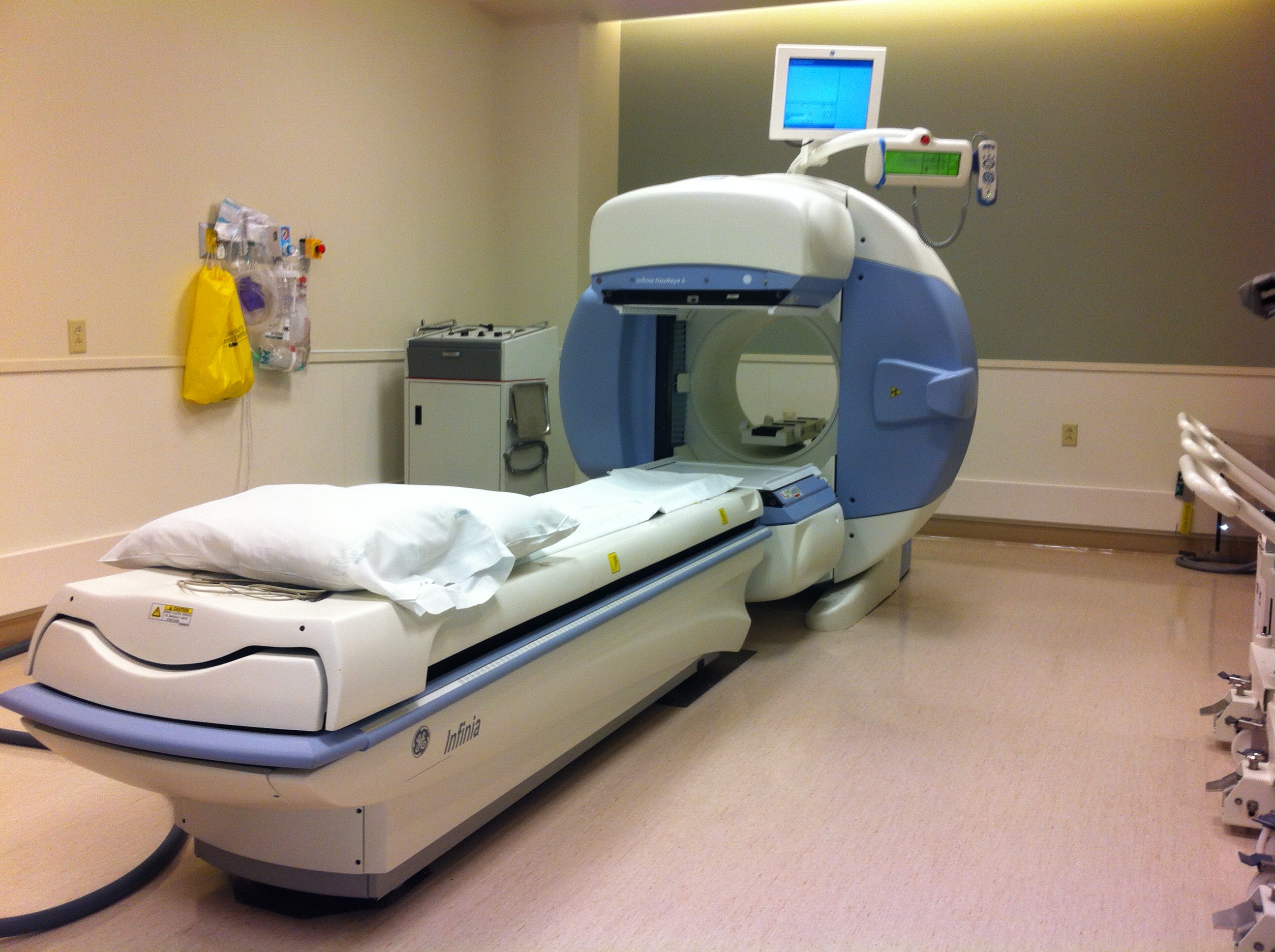Nuclear Medicine Scan
A nuclear medicine scan uses a special camera to create pictures of your organs (such as your heart, lungs, liver, and gallbladder) and bones. This test uses a small amount of radioactive material and a special camera.

Before Your Scan Appointment
-
Be sure to mention the medications you take and ask if it’s okay to take them before your test.
-
You will be given a tracer (radioactive material). It may be injected, swallowed, or inhaled. Your scan may then be done right away, or you may need to wait a few hours or even days to allow the tracer to concentrate in the part of the body being studied.
-
Your scan may take a few hours. Bring something you can do if you need to wait.
Let the technologist know if you:
-
Are pregnant or breastfeeding
-
Have had a nuclear medicine scan before
-
Have had a recent barium study or an x-ray using contrast
-
Have any fractures or artificial joints
-
Have any allergies
During the Scan
-
You will lie on a narrow imaging table.
-
A large camera is placed close to your body.
-
Remain as still as you can while the camera takes the pictures. This will ensure the best images.
-
The table or camera may be adjusted to take more pictures.
After Your Scan
Your next appointment is: _________________
© 2000-2025 The StayWell Company, LLC. All rights reserved. This information is not intended as a substitute for professional medical care. Always follow your healthcare professional's instructions.